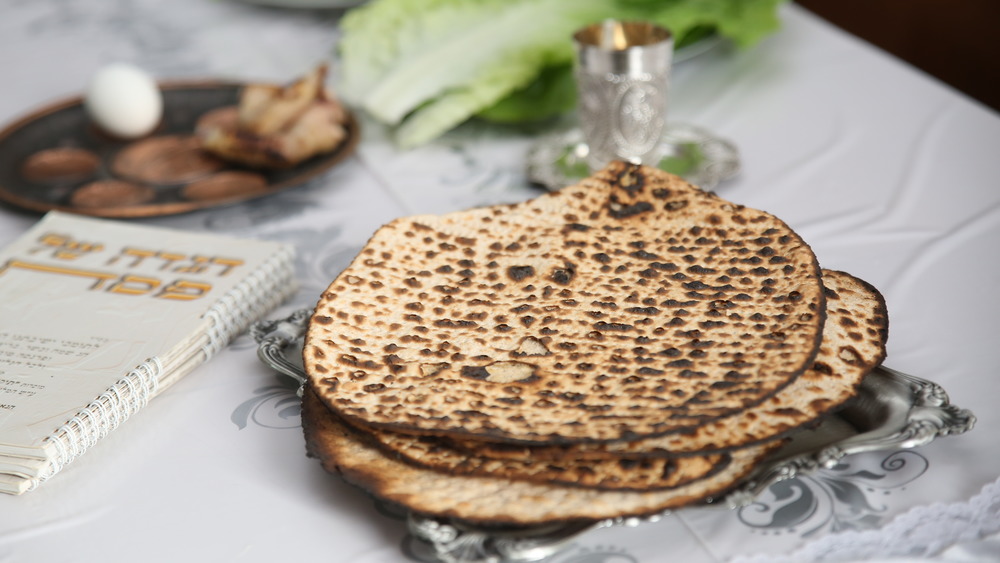The Real Reason You Eat Unleavened Bread During Passover
Passover (or "Pesach," which is the Hebrew word for it) is the annual holiday during which Jewish people celebrate the emancipation of their ancestors from 400 years of slavery in ancient Egypt, an episode of Jewish history that is described in the bible, according to Rabbi Norman Patz (via Reader's Digest). Central to the celebration is a ritualistic retelling of the story of how the Jewish people came to escape their bonds, according to My Jewish Learning, which points out that the storytelling is an actual biblical command from the Book of Exodus and that the story must always feature God as the hero – which is to say that it was God who arranged for it and made it possible.
But it's not just any kind of storytelling that Passover requires. The storytelling ritual is aimed at enabling everyone present to imagine themselves as being in the story. That's where the festive dinner comes in. It features a seder plate, which is basically a set of edible props that bring the story alive for everyone at the table. All items on the seder plate are important, but arguably, none so much as the unleavened bread. Here is the real reason for eating unleavened bread on Passover.
Unleavened bread symbolizes several key aspects of the story of Passover
Essential to the Passover seder (both the festive meal and the storytelling) is the seder plate, containing various foods meant to represent key story beats. One such food is unleavened bread, or matzo. Matzo is unique in that it appears in all three acts of the story, according to Rabbi Yisroel Cotlar (via Chabad.org).
First, as the Passover story begins, the Jews are slaves in ancient Egypt, and a significant part of their diet is a simple, unleavened flatbread made from grain and water. Accordingly, unleavened bread, or matzo, symbolizes "poverty and slavery." Specifically, it is introduced as the "bread of affliction" eaten by the Jewish people during their enslavement in Egypt.
Later in the Passover story, the Jews are given a set of instructions by God through Moses, which will lead to their emancipation. One of those instructions is to eat that bread of affliction the night before leaving Egypt. In this respect, matzo represents the faith the Jewish people placed in God prior to their redemption. Finally, when the Jews take flight, although they had planned on baking bread for their journey, it turns out there wasn't enough time for the dough to rise. In this respect, matzo becomes the "bread of freedom."
